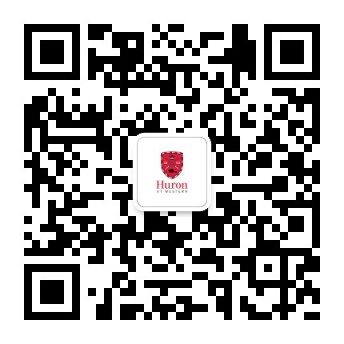Practicing ‘Community’ at the University: The Importance of Getting it Right
As we approach the second quarter of the twenty-first century Huron University is ideally positioned to become a model for small liberal-arts universities across North America to develop global citizens and leaders who will provide a moral compass for a compassionate global community.
To a large extent, I believe that universities have failed our world. Our current political leaders around the world have been educated in ‘critical thinking’ at the most prestigious universities in the world. But how well has their ‘critical thinking’ leadership served to make the world more humane, and its citizens more human? The notion of critical thinking has its roots in the mid-twentieth century. The U.S. National Council for Excellence in Critical Thinking defines critical thinking as the “intellectually disciplined process of actively and skillfully conceptualizing, applying, analyzing, synthesizing, or evaluating information gathered from, or generated by, observation, experience, reflection, reasoning, or communication, as guide to belief and action.”[1] Tremendous. But has this focus on critical thinking created a compassionate global community? Perhaps just the opposite.
University is generally acknowledged to be the time in our lives to have our intellectual prejudices challenged and our unexamined notions of truth shattered in order to receive learning and truth in surprising and deeper ways. But might it not also be the case that at the university our hearts can be opened to have our unexamined cherished notions of ‘love’ shattered? I do not mean an intellectual classroom exercise, but a chance for students to discover that they have a lot to learn about ‘how’ to love the radically ‘other’ in practice. This requires a safe ‘sacred’ space, confidence in one’s self, an inner resilience, and a fearless trust in leadership if one is to learn how to love in expanded, refreshing, and deeper ways. But such radical loving can only be learned if we gather in real community.
The single focus on developing only one side of the human personality (a ‘critical thinking’) without the other side (a ‘critical loving’) has contributed to the unfortunate state of our world today. As Canadian universities are educating global leaders, how these leaders learn during their university studies to interact with others of different faiths, traditions, spiritualities, humanist, atheist traditions will be played out over the next generation. We dare not neglect our responsibility to model how our students can become global citizens, compassionate in all areas of diversity and inclusion.
The international make-up of our campus makes Huron a microcosm of the global village and thus provides the potential for radical community that universities have not embraced. Having an international diversity of students on a campus only to have them gather together with other students of similar worldview, ethnic, nationality, or religious identities will not develop global citizens. Providing the very best practices of physical, mental, emotional, and academic professional care for every type of student will not develop global citizens. Providing multifaith centres where various religious leaders can facilitate expressions of worship or meditative practices for a plethora of religious, faith, spiritual, and humanist traditions, will not develop global citizens.
Rather, students at Huron must be challenged and offered the inner resources to take steps toward those who are other than themselves. This is how we learn how to honour, love, and respect one another. To live, eat, study, and play next to one other does not create community. Community begins when we take the risk to step toward the other of different cultural background and core values. Huron university can be that safe space (metaphorically and literally) in which students learn to become vulnerable to one another in community, practicing a respect and embrace of other students of radically different core beliefs.
In response to the increasing break-down of basic human civility around the world, the chapel and chaplaincy at Huron encourages the vision of a global community of understanding, respect, love and compassion that shapes the practice of real community on campus. It is a tall order. Students must be encouraged to become fearless in embracing (and modeling how others can embrace) the myriad religious, spiritual and humanist traditions and the deeply held secular worldviews of others. What is needed in the contemporary university is a commitment to developing the character of global citizenship (i.e. becoming fully human) in an actual campus community that is radically inclusive.
I believe that Huron University can become just such a model for a radical compassionate inclusivity that will develop leaders-with-heart equipped with the vision of a global community. Indeed, such a vision is the only hope for our world.
Note: During this COVID time when there no students at Huron university, I am convinced that Huron university will offer the very best on-line teaching to students, and exceptional second-to-none student support. As chaplain I am privileged to be part of that support system. I am so proud to be part of this university that cares so deeply for the student as a whole person. But I hope that others yearn as much as I do for the return of students to campus, so that Huron can dare to rise to its true potential and model the principles of global community for the sake of the world. May our longing for real community prepare us all to courageously embrace this challenge upon our return to campus!
Gary Thorne
Chaplain
Huron University
[1] Critical Thinking as Defined by the National Council for Excellence in Critical Thinking, 1987 A statement by Michael Scriven & Richard Paul, presented at the 8th Annual International Conference on Critical Thinking and Education Reform, Summer 1987.




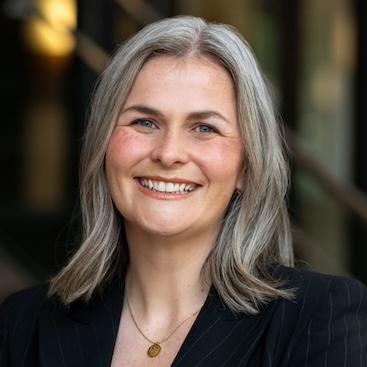
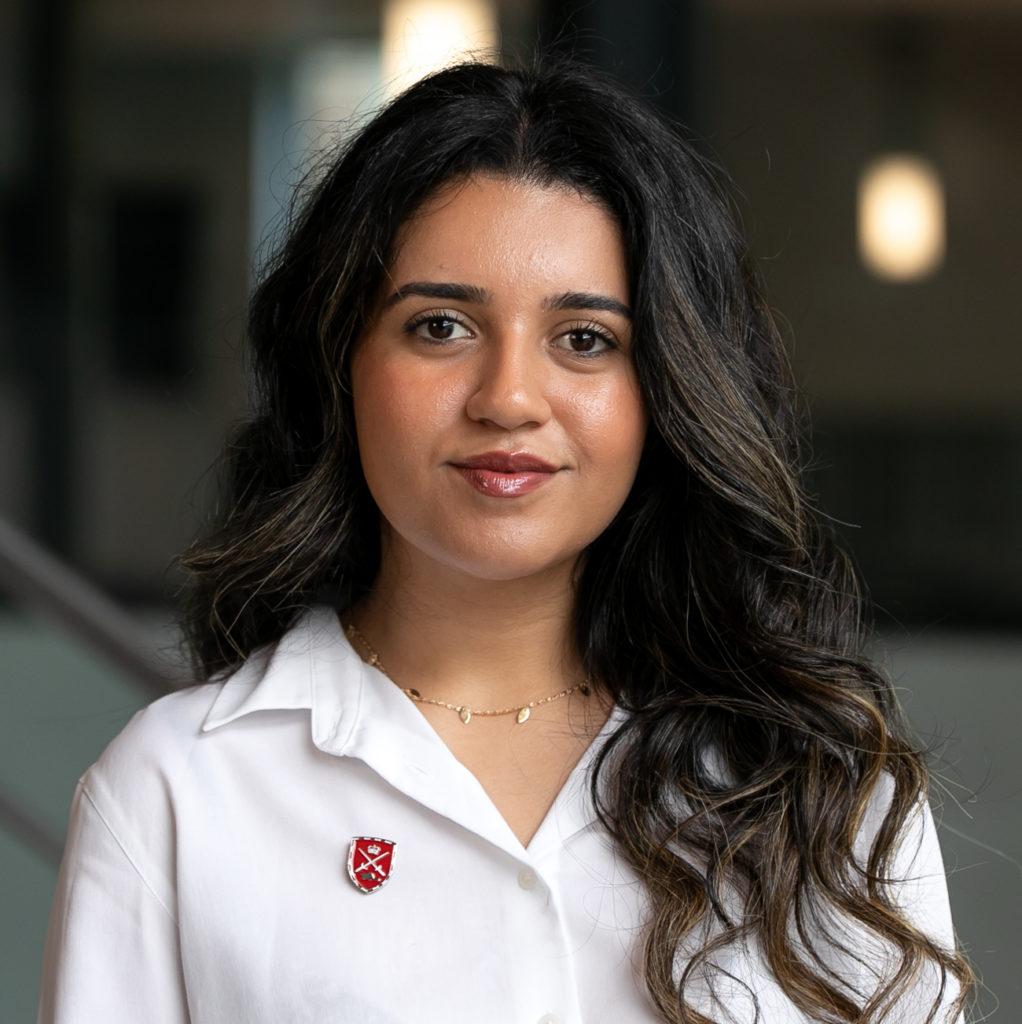
 Lisa Jones Keenan is the Vice President of Sales at Xplornet Communications, the largest rural fixed wireless broadband service provider in Canada.
Lisa Jones Keenan is the Vice President of Sales at Xplornet Communications, the largest rural fixed wireless broadband service provider in Canada. 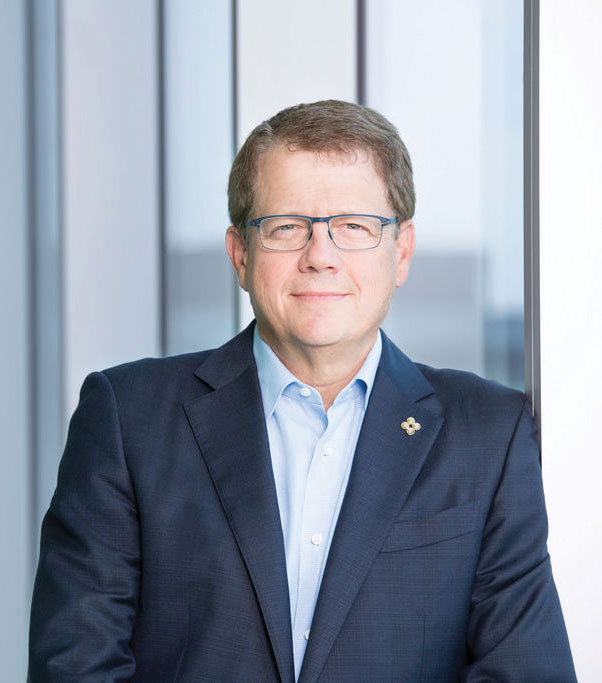
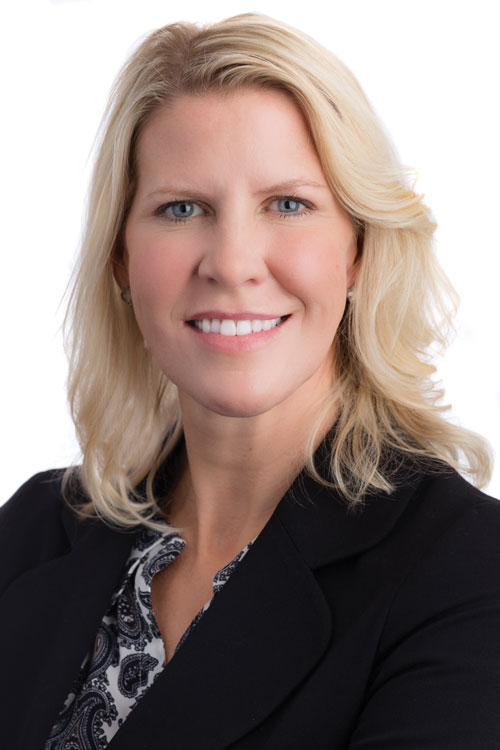 Leigh Allen is the AVP, Global Strategic Research, Reinsurance Group of America Inc., one of the world’s largest global life and reinsurance companies.
Leigh Allen is the AVP, Global Strategic Research, Reinsurance Group of America Inc., one of the world’s largest global life and reinsurance companies.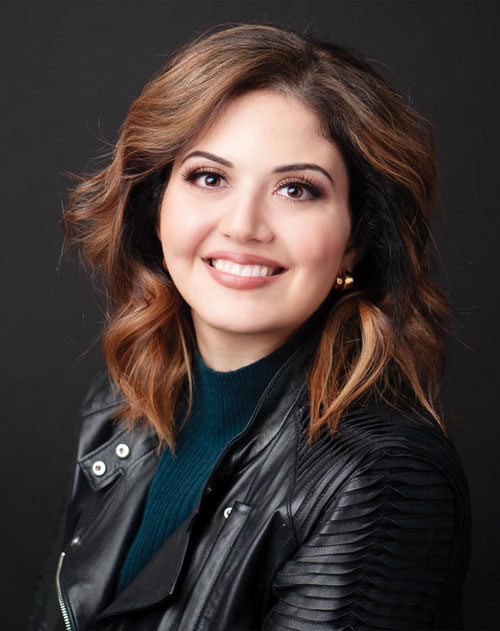 Yola Ventresca is a Managing Partner, Lerners LLP, Secretary of Huron’s Board of Governors and a Huron Class of ’02 alumni. Selected as one of Canada’s “Best Lawyers,” she is passionate about the value of Liberal Arts in helping students succeed in their careers.
Yola Ventresca is a Managing Partner, Lerners LLP, Secretary of Huron’s Board of Governors and a Huron Class of ’02 alumni. Selected as one of Canada’s “Best Lawyers,” she is passionate about the value of Liberal Arts in helping students succeed in their careers.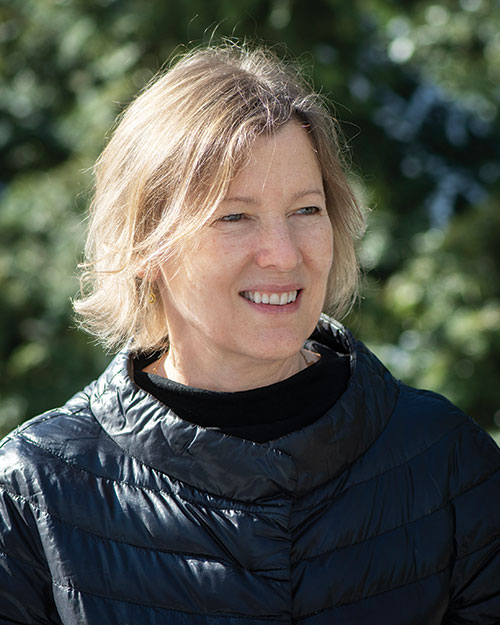 Susan Farrow is an Assistant Professor in The Temerty Faculty of Medicine at the University of Toronto and a Founding Partner and Co-Director of The Toronto Institute of Group Studies, an organization offering certified training and education in group leadership.
Susan Farrow is an Assistant Professor in The Temerty Faculty of Medicine at the University of Toronto and a Founding Partner and Co-Director of The Toronto Institute of Group Studies, an organization offering certified training and education in group leadership. 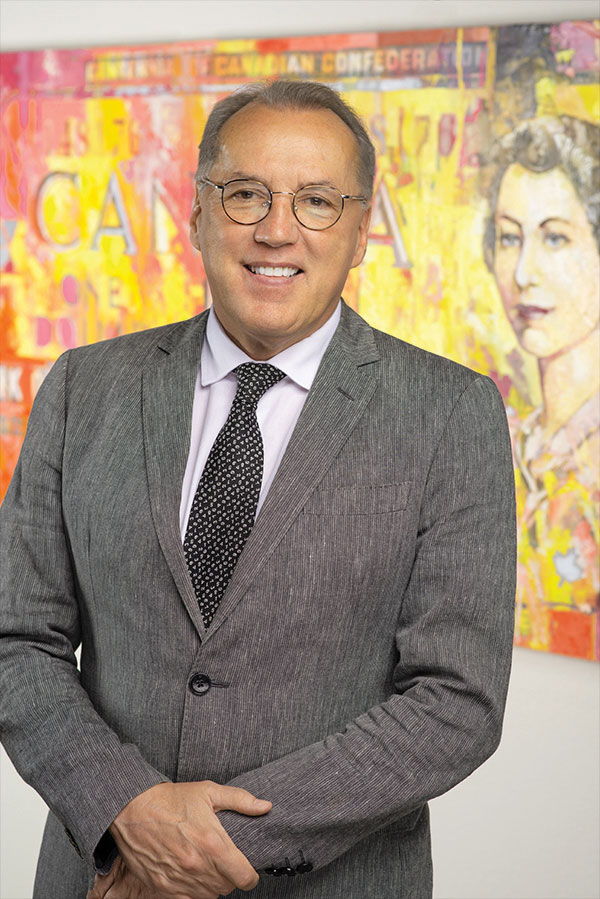 Frank Holmes is CEO and Chief Investment Officer of U.S. Global Investors, as well as a business commentator, philanthropist and Huron Class of ‘78 alumnus. Holmes also serves as the Executive Chairman of HIVE Blockchain Technologies, the first cryptocurrency mining company to go public in 2017.
Frank Holmes is CEO and Chief Investment Officer of U.S. Global Investors, as well as a business commentator, philanthropist and Huron Class of ‘78 alumnus. Holmes also serves as the Executive Chairman of HIVE Blockchain Technologies, the first cryptocurrency mining company to go public in 2017.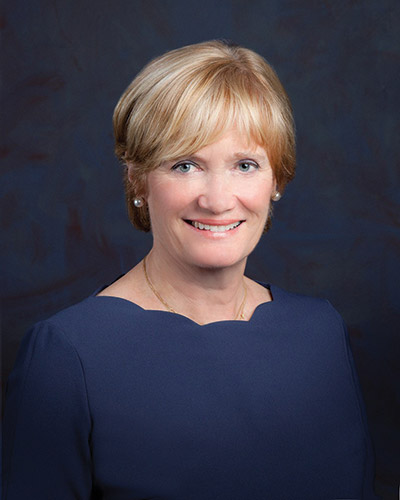 Kelly Meighen is an experienced philanthropist and volunteer. In her role as president of the T.R. Meighen Family Foundation, she has created a legacy of volunteerism and philanthropic giving in the areas of youth mental health advocacy, environmental conservation and cultural vibrancy.
Kelly Meighen is an experienced philanthropist and volunteer. In her role as president of the T.R. Meighen Family Foundation, she has created a legacy of volunteerism and philanthropic giving in the areas of youth mental health advocacy, environmental conservation and cultural vibrancy. 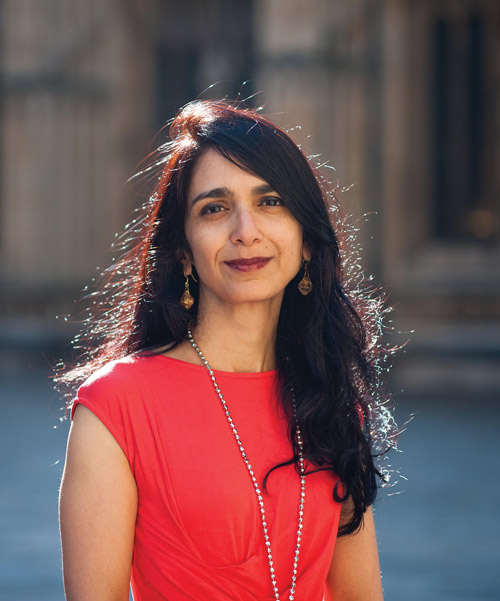 Ranjita is Executive Chair of the Oxford Global Partnership, advising investors, businesses, family offices and entrepreneurs on sustainable, inclusive and responsible value creation. A Business Fellow at Oxford University’s Smith School, Ranjita engages with companies on pursuing value with values, and teaches a postgraduate “Essentials of ESG & DEI” course.
Ranjita is Executive Chair of the Oxford Global Partnership, advising investors, businesses, family offices and entrepreneurs on sustainable, inclusive and responsible value creation. A Business Fellow at Oxford University’s Smith School, Ranjita engages with companies on pursuing value with values, and teaches a postgraduate “Essentials of ESG & DEI” course.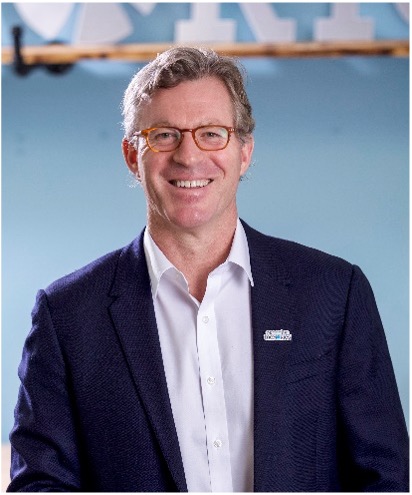 Caleb Hayhoe is the Founder & Chairman of Flowerdale Group and a Huron Class of ’85 Alumnus. Flowerdale Group is a Hong Kong based family office with a global investment outlook across public markets, real estate and private investment. Hayhoe previously spent over ten years building a global sourcing business together with an exceptional team, and remains committed to entrepreneurialism and helping great ideas become sustainable companies.
Caleb Hayhoe is the Founder & Chairman of Flowerdale Group and a Huron Class of ’85 Alumnus. Flowerdale Group is a Hong Kong based family office with a global investment outlook across public markets, real estate and private investment. Hayhoe previously spent over ten years building a global sourcing business together with an exceptional team, and remains committed to entrepreneurialism and helping great ideas become sustainable companies.



